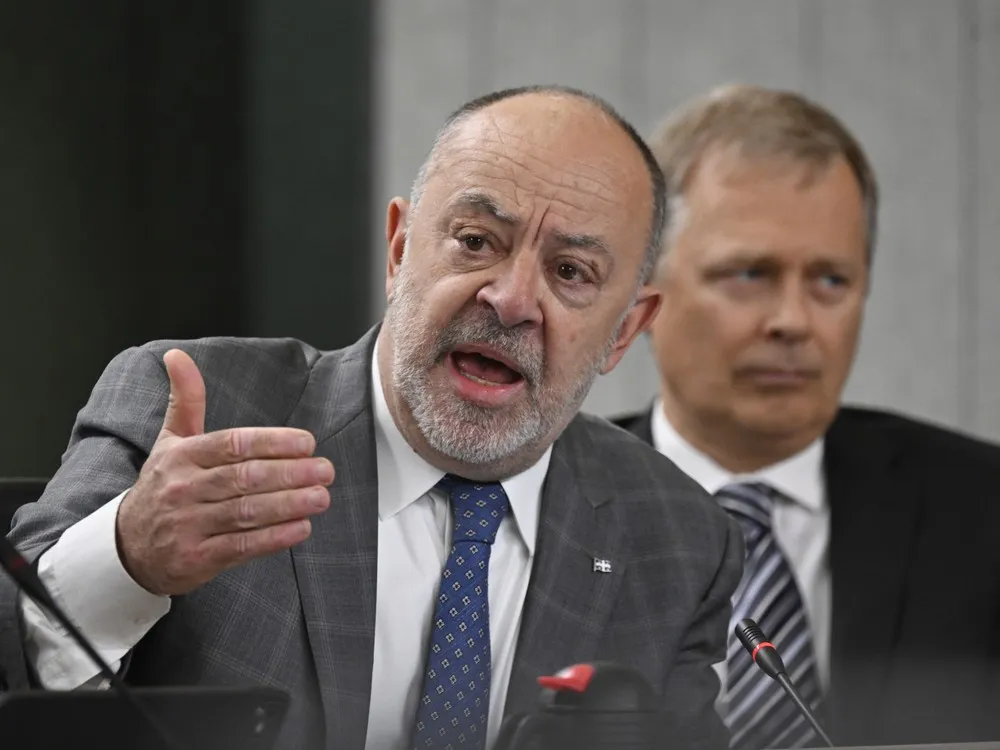Copyright montrealgazette

Advertisement 2AdvertisementThis advertisement has not loaded yet, but your article continues below. Article contentAs has been widely reported, Ford told Philpott he wanted action, not analysis, and gave her a $1.8-billion budget to set up more than 300 new primary care teams by the end of the decade. So far, 76 groups have been created or authorized, serving as the entry point to health services rather than emergency rooms. The government recently announced funding for 80 more.Article contentJust like new schools have to be built and more teachers found to accommodate demographic growth and movement, new clinics must be set up and more medical professionals trained to meet the needs of a rising and aging population. Philpott’s action plan also includes making it easier to book appointments with technological upgrades and ensuring doctors have the supports they need to deliver care efficiently and effectively.Article contentIt’s not perfect. Ford’s hasty changes to the eligibility of internationally trained doctors applying for residencies in the province have come under fire. And the centralized waiting list that is being whittled down accounts for only some of the estimated two million Ontarians lacking a family physician.Article contentAdvertisement 3Story continues belowThis advertisement has not loaded yet, but your article continues below.Article contentBut the strategy is showing promising results. More importantly, it demonstrates non-partisan determination to fix health care.Article contentIn Quebec, the reflex has become to fight.Article contentThis dates from the days when Legault himself was health minister in a Parti Québécois government and imposed measures to ensure doctors were evenly distributed among all regions of the province. Now it’s like he has a score to settle.Article contentFor more than two decades, permits he imposed that dictate where a family physician can practise — down to the postal code — were a bureaucratic hurdle that grew into an irritant. More recently, these Plans régionaux d’effectifs médicaux (or PREMs) have become a deterrent to young doctors choosing family medicine in the first place, driving them to the private system or out of the province.Article contentThis in turn led to a proliferation of new constraints. Adopted in April, Bill 83 forces new doctors to practise in the public system in Quebec for five years or face fines. Physicians have likened the restrictions to a prison.Article contentAdvertisement 4Story continues belowThis advertisement has not loaded yet, but your article continues below.Article contentNow it’s all-out war over Bill 106.Article contentNo sooner had doctors unanimously rejected a new contract offer last spring than Dubé presented a law to enforce.Article contentNegotiations over the summer resulted in an impasse because the controversial performance-based pay model remains on the table.Article contentNow that the Fédération des médecins spécialistes du Québec has been joined by the Fédération des médecins omnipraticiens du Québec in paralyzing medical education, Dubé may be tempted to be even more heavy-handed. The CAQ government could invoke closure to adopt Bill 106 or pass a special law to force physicians to resume their teaching duties. On Monday, the specialists called on Legault to intervene personally to break the deadlock (even though it’s unclear that there’s any daylight between himself and his health minister).Article contentQuebec doctors are livid — and rightly so.Advertisement 2This advertisement has not loaded yet. Advertisement 3Story continues belowThis advertisement has not loaded yet, but your article continues below. Article contentTheir working conditions have deteriorated while their workloads have increased and their prescriptions on how to improve care have been ignored. Meanwhile, the government has peddled a disrespectful narrative that doctors are greedy and lazy.Article contentMany are retiring or quitting. New recruits are being thrown under the bus and prospective students may think twice about medicine. Physicians who can are leaving Quebec.Article contentMaybe some of them will end up in Ontario, where instead of feuding there is a constructive plan to fix access to health care.Article contentArticle content Featured Local Savings



